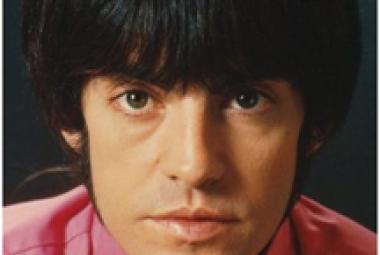Television is an American rock band, formed in New York City in 1973 and considered influential in the development of punk and alternative music. Television was a fixture of the 1970’s New York rock scene along with acts like the Patti Smith Group, the Ramones, Blondie, and Talking Heads. Although they recorded in a stripped-down, guitar-based manner similar to their punk contemporaries, Television’s music was by comparison clean, improvisational, and technically proficient, drawing influence from avant-garde jazz and 1960s rock. The group’s debut album, Marquee Moon, is often considered one of the defining releases of the punk era. (More from Wikipedia)
Phil Gammage is from Houston and went to college at the University of Colorado. He was walking through one of the classroom buildings early in the school year in 1977 and heard some raucous music being played. It seems that a fine arts professor at the college, Jerry Kunkel had been to the CBGB club, the punk-rock mecca in New York City; there he had heard Ramones, Television and some other early punk bands. He came back to the university inspired to start a rock band himself.
The practice session that Phil Gammage heard was Jerry Kunkel on lead vocals, his new wife Marsha Vann Kunkel on bass guitar, and Jerry Budwig on guitar. Phil picked up a guitar and plugged in; by the end of the night, he was asked to join the band. Drummer Peter Roos was originally from New England and had also seen Television; he joined the band shortly afterward.
* * *
More generous praise can be found in the Wikipedia article. Reviewing a 1984 Certain General show at New York’s Pyramid club, the UK-based New Musical Express called the band “New York’s answer to [Echo and] the Bunnymen with a few [Jim] Morrison tendencies thrown in” [but with] “plenty of individuality and a lead singer full of passionate presence — agonized lyrics torn from twitching limbs”. The review concluded by observing that Certain General was “almost psychedelic in their unfettered spirit”. Bomp! Records – whose affiliated label Alive Records reissued November’s Heat in America in 1999 – has called them “NYC’s 80’s cult favorite”, while Rock & Folk identified Certain General as “the bridge between Television and Radiohead”.
(March 2015)
* * *















